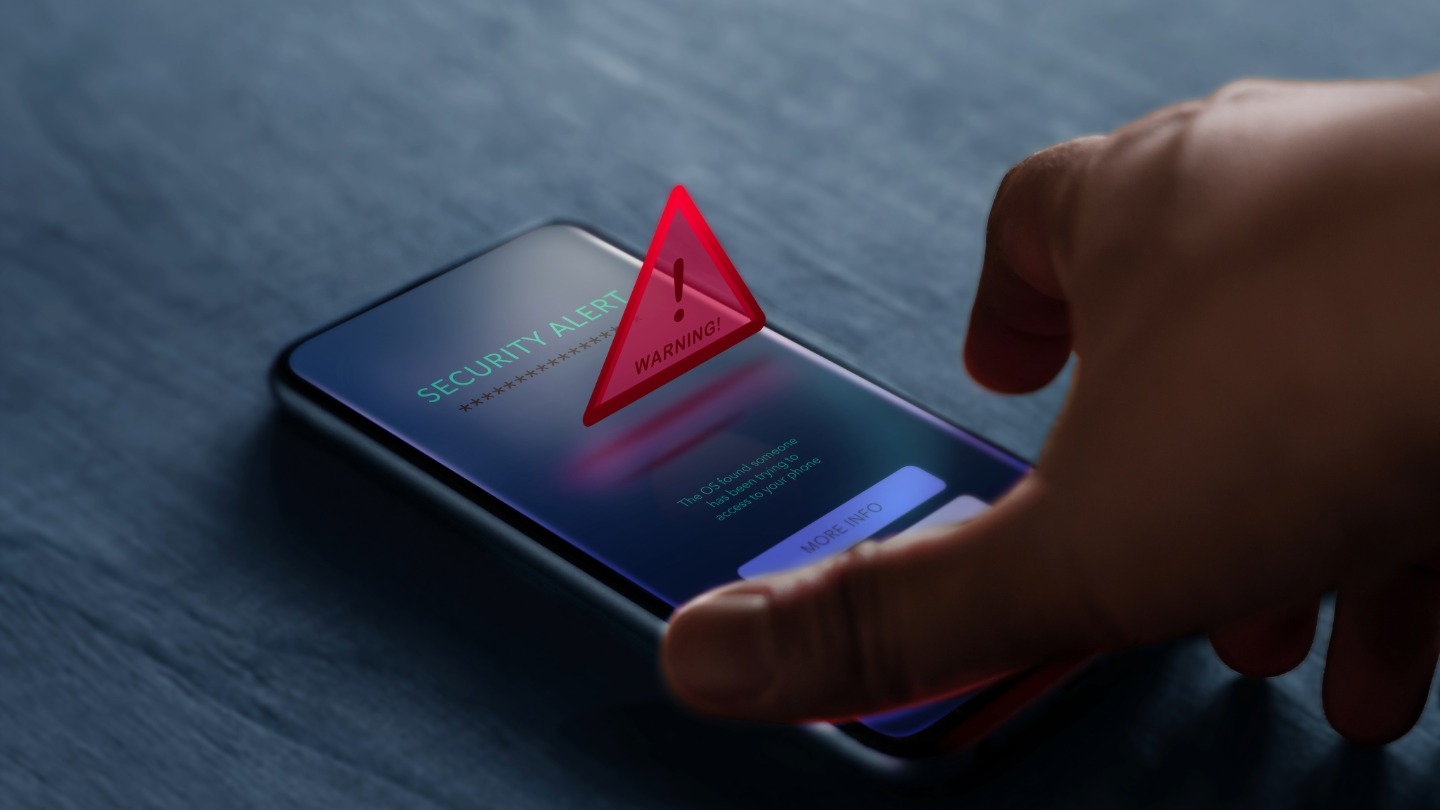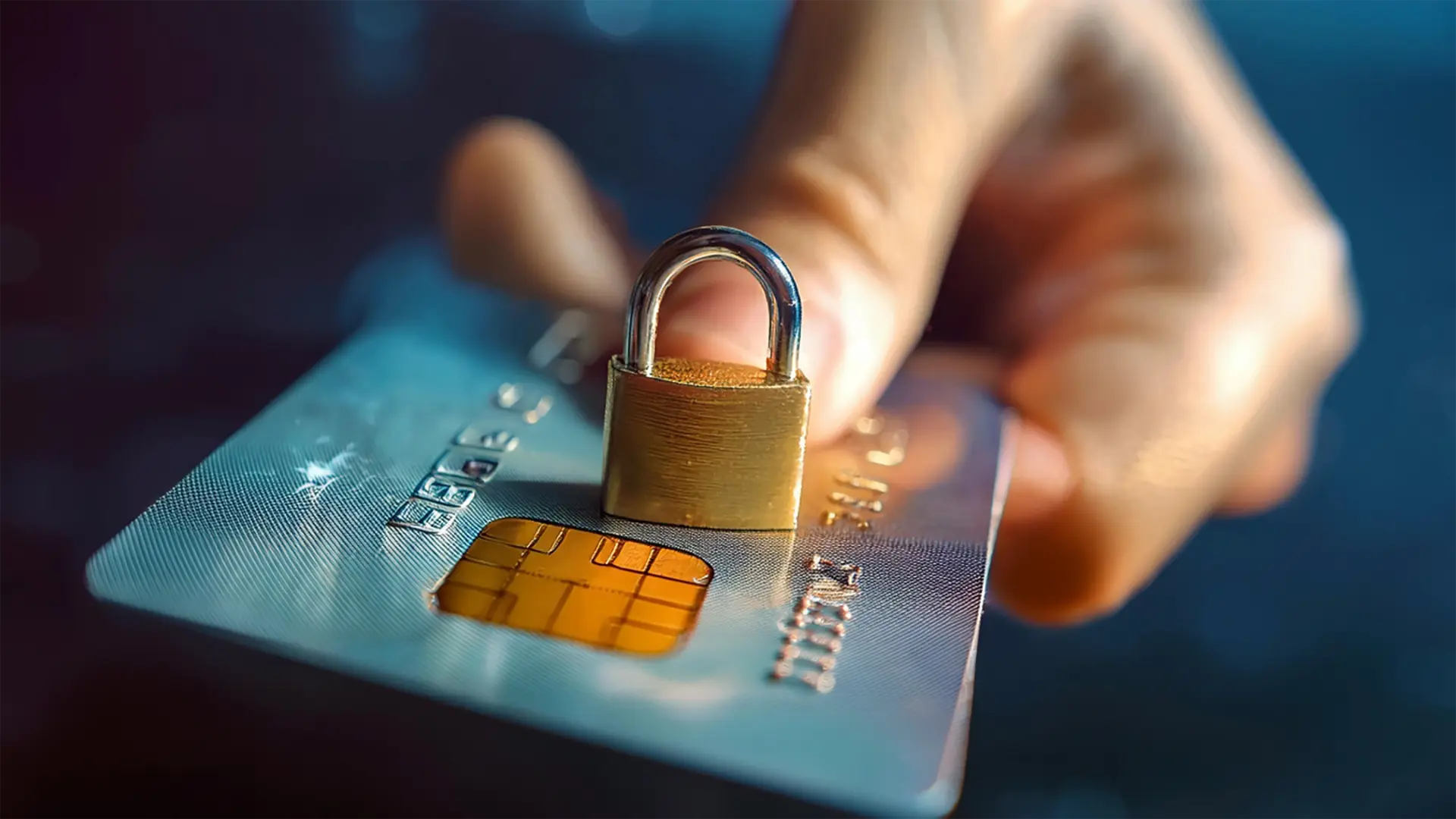
A phone isn’t just a phone anymore. In today’s world, it’s your lifeline: your connection to family and friends, your work hub, your navigation system, even your personal DJ. Leaving the house without it can feel like leaving a limb behind.
Most of us store sensitive information on our phones, from banking details to health data. With so much of your personal life stored on one device, there’s a lot at stake if your phone falls into the wrong hands, whether physically or digitally.
A single compromise can expose your financial accounts, personal photos and messages, or security codes.
And unfortunately, mobile hacking is becoming more common and more sophisticated. According to Appdome’s 2024 global survey, over 40% of mobile phone users have either personally dealt with mobile fraud, malware, or a cyberattack, or know someone who has.
In the same survey, 58% of respondents said that mobile fraud is their top security worry, and it’s easy to understand why. With AI-driven scams and impersonation tactics on the rise, cyberattacks are more frequent and more convincing than ever.
Can Your Phone Really Be Hacked?
Yes, and it happens far more often than most people realize.
A Kaspersky report found that smartphone attacks rose by 48% in the first half of 2025 compared to the previous six months.
Smartphones are always connected, through messages, cloud syncing, Bluetooth, and countless apps. But the same constant connectivity we’ve become so dependent on has also created more entry points for hackers to exploit.
Once they’ve gained access, hackers can steal your credentials, change passwords, read your messages, and use personal data to steal your identity.
How Do Hackers Gain Access?
The tactics scammers use to hack smartphones are always evolving, but there are common ways mobile devices are compromised:
- SMS phishing
Also known as “smishing”, fake text messages are made to appear as though they come from banks, delivery services, or even government agencies. These texts often include a link that can quickly (and silently) install malware or steal login credentials without your knowledge. - Malicious apps
Apps downloaded from unofficial sources, or even fake lookalikes in legitimate app stores, may contain hidden malware. - Dangerous attachments
Hackers can send malicious files through messaging apps, email, or even AirDrop. Once opened, these files can instantly infect your device. - Unsafe Wi-Fi
If you connect to public or unsecured Wi-Fi networks, hackers can intercept your data through “man-in-the-middle” attacks. - Reused passwords
If you use the same password across multiple accounts, just one account breach can mean hackers gain access to your cloud storage, email accounts, or even financial apps. - Outdated software
Operating system updates frequently contain security patches. If you ignore them, your phone is more vulnerable.
How to Know If Your Phone Has Been Hacked: 10 Signs to Watch For
While hackers can hide their activity well, there are red flags your device may have been compromised. Keeping an eye out for unusual behavior can help you stop an attack early.
- Battery drains fast
If your phone starts losing battery faster than usual, don’t assume it’s just from heavy use. Malware often runs silently in the background, using up power even when you’re not actively on your phone. - Overheating
It’s normal for your phone to get warm if you’re charging, streaming, or gaming. However, if you notice your phone heats up while you’re not using it, this may indicate there’s spyware running without your knowledge. - Unknown apps appear
If you spot apps you don’t recognize, uninstall them immediately. Hackers may hide malicious software behind icons that look legitimate. Delete anything unfamiliar and run a malware scan. - Data usage spikes
Keep a close eye on data usage. If it jumps for no clear reason, your phone might be sending information without you even realizing. Check your phone settings to see what’s using the most data; this may help you determine whether your phone is secretly transmitting information. - Strange texts sent from your number
If friends or family let you know they’ve received strange messages from you, or if you spot texts or calls in your phone log that you didn’t make, it might mean your phone - or even an account linked to it - has been compromised. - Pop-ups and ads everywhere
Pop-ups are annoying on their own, but if you find pop-ups appearing even when you’re not using your browser, that’s a red flag of adware, which can redirect you to unsafe websites or trick you into dangerous downloads. Don’t click anything unfamiliar, and run an antivirus or security scan. - Account logouts
If you’re suddenly signed out of apps or notice your passwords have been changed, take it seriously. Hackers often change login credentials to lock you out completely, giving them time to steal personal or financial information before you regain control. - Weird background noises
If you hear strange sounds, like static, clicks, or even faint voices during your phone conversations, there may be a call-monitoring or recording app on your device. - You can’t shut your phone off
Malware can override your device’s power commands. If you can’t get your phone to shut down, or it restarts out of nowhere, a hacker may be interfering with your system functions. - Suspicious charges or alerts
Unauthorized purchases or login attempts may mean your payment data or identity is compromised.
What You Should Do If Your Phone Has Been Hacked
If you notice signs your phone has been hacked, act quickly. The sooner you take steps towards securing your information, the better you can prevent further damage.
- Disconnect Wi-Fi
Immediately turn off your Wi-Fi to prevent scammers from transmitting or receiving any more data. - Change Passwords
Using a separate, trusted device, like a family member or friend’s phone, and changing passwords for important accounts, including email, banking, and social media. Reset your passwords following secure best practices, and turn on two-factor authentication for maximum protection. - Use Built-In Security Features
Modern smartphones come with a slew of security features; unfortunately, many of us don’t take advantage of them. Pew Research found that 28% of smartphone users said they don’t use a screen lock or other security features, leaving their devices wide open to hackers. Take advantage of available features, whether it be facial recognition, passcodes, or encrypted backups. - Consider Parental Controls for Family Devices
If you share devices with children, or if they have phones of their own, enable parental controls to help protect them online. Parental control tools let you manage what your child can see and do online, set screen time limits, and restrict access to unsafe apps or websites. - Update Your Phone’s Software
Updates provide more than bug fixes; they close known security gaps. In the future, be sure to update your phone regularly. In the last quarter of 2024, 17.23% of scanned Android devices, and 6.73% of iOS devices were running versions that no longer received security updates. By January 2025, only 56% of iPhones were fully up to date, meaning millions of users were unknowingly at risk. - Run Antivirus Software with IdentityIQ
An antivirus software scan is one of the fastest ways to uncover hidden threats. IdentityIQ’s advanced device protection can identify malware, spyware, and adware that traditional or manual scans might miss. With IdentityIQ device protection, you also gain access to a secure VPN for unlimited encrypted traffic, securing complete online privacy.
If Your Phone is Hacked, Act Fast
The best way to reduce the harm hackers can cause is to act as quickly as possible.
Hackers can use phones, laptops, iPads, and even work accounts to get access to your information to open credit lines, drain bank accounts or even commit crimes in your name. Cyber-attacks may not come immediately, and many victims don’t realize what’s happened until months later.
While you might quickly notice signs of your phone being hacked, it’s much harder to detect the early signs of criminals using the information stolen from your device – at least on your own.
How IdentityIQ Helps You Act Fast & Recover Faster
With real-time monitoring of your credit, identity, bank accounts, and more, IdentityIQ helps you catch suspicious activity quickly and act before criminals have a chance to do lasting damage.
Plus, our active device protection, privacy scans, military-grade antivirus, and other device protection, we help stop criminal activity before it starts.
With IdentityIQ, you can access:
- Identity Theft Protection: More people than ever are falling victim to identity theft. With IdentityIQ, you gain access to comprehensive identity protection, with 24/7 monitoring of your credit reports, public records, and the dark web for your personal data. If suspicious activity does occur, our team can help you take back control.
- Advanced Device Security: IdentityIQ’s security tools block hackers, malware, and phishing attempts before they can compromise your phone or computer.
- Secure VPN: Encrypt your internet connection to protect personal details no matter what Wi-Fi network you connect to. Whether you’re shopping, banking, or just browsing, your information stays private.
- Real-Time Credit Monitoring Alerts: Track your credit, receive alerts, and manage device protection all from one central dashboard.
- Restoration Support: If identity theft does occur, IdentityIQ provides expert restoration assistance to help you recover and reclaim control of your personal information.
Final Thoughts
From banking details to private messages, your phone contains the kind of information hackers dream about, and will do anything to get.
Watch for warning signs that your phone has been hacked, keep your software updated, and use trusted protection software from IdentityIQ to keep your personal data secure and your digital life protected.
Get started with IdentityIQ today, so you can protect yourself from hackers before they strike.







